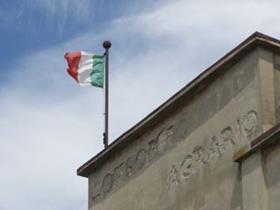
Too many small, inefficient wholesale markets are forcing up produce prices for consumers and reducing returns to growers in Italy.
That's the central finding of a new report just released by the Bank of Italy, which says that the distribution of fresh fruits and vegetables is being choked because there are simply too many middlemen involved in the chain.
Italy's central bank says the producer price of an average basket of fresh fruits and vegetables is doubled by the time it leaves the wholesale market, resulting in prices sometimes 200 per cent higher for shoppers.
'Caro frutta' (literally, expensive fruit) has become a hot political issue in Italy in recent months as Italians, among Europe's largest per capita consumers of fresh produce, are having to curb their spending in the face of economic crisis.
The Bank of Italy report takes to task Italy's complex system of produce distribution, in which some 150 wholesale markets are now operating compared with only 19 in France and 23 in Spain. Many markets are simply old and outdated, the report says, with one-third of them having been built before the Second World War. Problems are particularly severe in southern Italy.
The inefficiencies affect the supermarket sector too, as they do a proportion of their buying through the wholesale markets. Indeed, the Bank of Italy claims that just 25 per cent of fresh produce purchasing by supermarkets is direct with growers.



